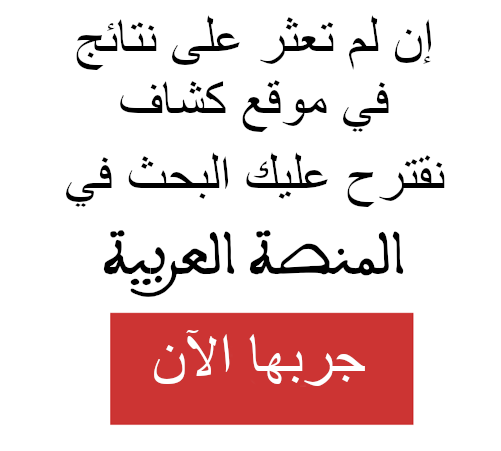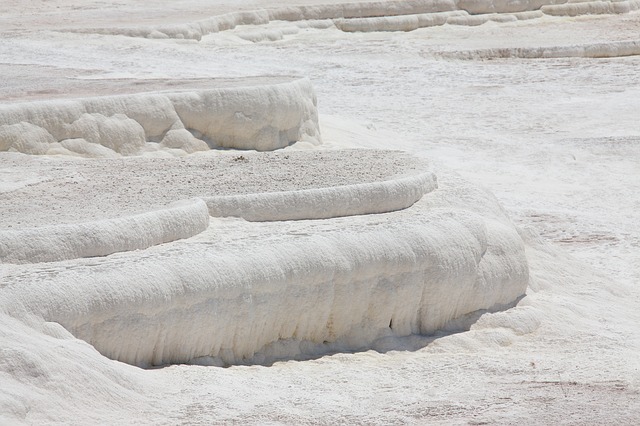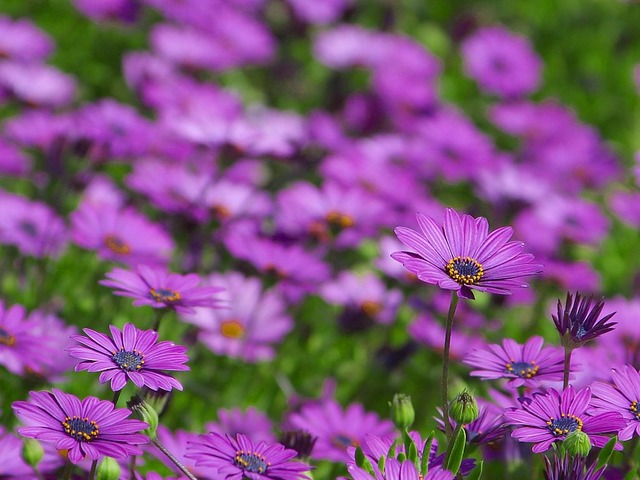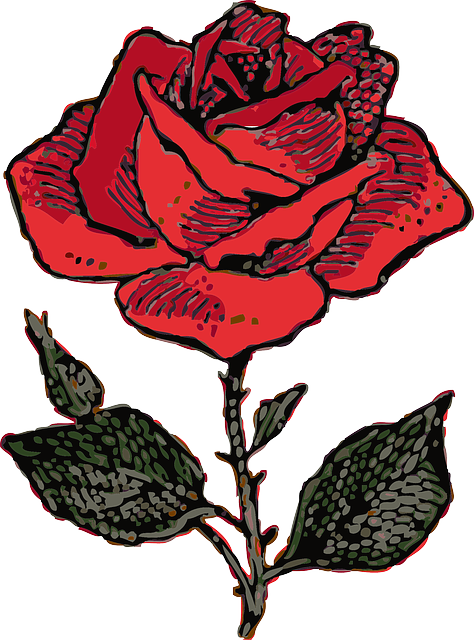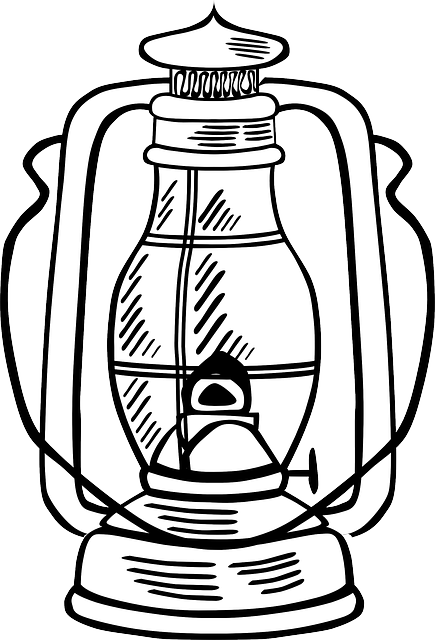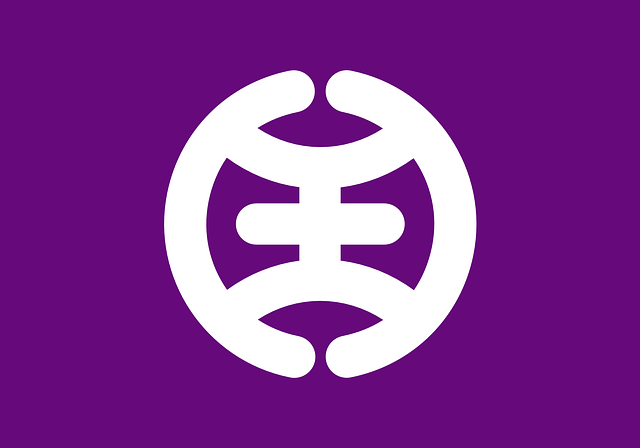عايدة (اوپرا)
| جوسپه ڤردي |
|---|
|
الأوپرات
|
عايدة Aida (تـُنطق /aˈiːda/)، هي اوپرا من أربع فصول تلحين جوسپه ڤردي وتأليف أنطونيوگيسلانزوني، مقتبسة من سيناريوخطه عالم المصريات الفرنسي اوگست ماريت. قدمت عايدة لأول مرة على دار الاوپرا الخديوية بالقاهرة في 24 ديسمبر 1871، بقيادة المايستروجيوڤاني بوتسيني.
النشأة
كلف الخديوي إسماعيل باشا، ڤردي بكتابة اوپرا لتقدم في يناير 1871، ودفع له 150.000 فرنك، لكنها تأجلت بسبب قيام الحرب الفرنسية الپروسية. ادعى أحد الفهماء حتى محرر السيناريوهوتميستوكله سولرا وليس اوگست ماريت.Metastasio's libretto Nitteti (1756) was a major source of the plot. خلافاً للاعتقاد الشائع، لم تخط الاوپرا احتفالاً بافتتاح قناة السويس عام 1869، ولا لافتتاح دار الاوپرا الخديوية (والتي افتتحت باوپرا ريگوليتو لڤردي) في العام نفسه. (طُلب من ڤردي تأليف قصيدة غنائية لافتتاح القناة، لكنه اعتذر لأنه لا يخط "أعمال موسمية".)
الأداء التاريخي
العرض الأول بالقاهرة والعرض الأول في إيطاليا
العروض
- الأمريكتين: أربعة أكتوبر 1873، Teatro Colón in Buenos Aires (most likely the original Teatro Colón prior to the present one or Teatro Opera)
- الولايات المتحدة: 26 نوفمبر 1873، أكاديمية نيويورك في مدينة نيويورك، with Ostava Torriani in the title role, Annie Louise Cary as Amneris, Italo Campanini as Radames, Victor Maurel as Amonasro, and Evasio Scolara as the King
- ألمانيا: 20 إبريل 1874، اوپرا برلين, with Mathilde Mallinger as Aida, Albert Niemann as Radames, and Franz Betz as Amonasro
- إسپانيا: 12 ديسمبر 1874، Teatro Real
- النمسا: 29 إبريل 1874، اوپرا ڤينا, with Amalie Materna as Amneris
- المجر:عشرة إبريل 1875، دار الاوپرا المجرية، بودابشت
- پولندا: 23 نوفمبر 1875, الاوپرا الوطنية الپولندية والمسرح الكبير، وارسو. عرضت أول ترجمة پولندية لعايدة فيتسعة يونيو1877.
- فرانسا: 22 إبريل 1876, Théâtre-Lyrique Italien, Salle Ventadour, Paris, with almost the same cast as the Milan premiere
- روسيا: 1 ديسمبر 1875, Mariinsky Theatre, Saint Petersburg
- بوهميا: 11 December 1875, New Czech Theatre, Prague
- المملكة المتحدة: 22 يونيو1876, دار الاوپرا الملكية, Covent Garden, with Adelina Patti as Aida, Ernesto Nicolini as Radames, and Francesco Graziani as Amonasro
- Monaco: 13 May 1877, National Theatre, Monte Carlo
- Australia:ستة September 1877, Royal Theatre, Melbourne
- Munich: 1877, Bavarian State Opera, with Josephine Schefsky as Amneris
- ستوكهولم: 1880, اوپرا ستوكهولم الملكية, with Selma Ek in the title role
- Palais Garnier, باريس: 15 أكتوبر 1881, with Gabrielle Krauss as Aida, Rosine Bloch as Amnéris, Henri Sellier as Radames, Georges-François Menu as the King, and Auguste Boudouresque as Ramphis.
- اوپرا متروپوليتان، نيويورك : 12 نوفمبر 1886, conducted by Anton Seidl, with Therese Herbert-Förster (the wife of Victor Herbert) in the title role, Carl Zobel as Radames, Marianne Brandt as Amneris, Adolf Robinson as Amonasro, Emil Fischer as Ramfis, and Georg Sieglitz as the King.
- ريودي جانيرو: 30 يونيو1886, Theatro Lyrico Fluminense. During rehearsals at the Theatro Lyrico there was an ongoing quarrel between the performers of the Italian touring opera company and the local inept conductor, with the result that substitute conductors were rejected by the audience. Arturo Toscanini, at the time a 19-year-old cellist who was assistant chorus master, was persuaded to take up the baton for the performance. Toscanini conducted the entire opera from memory, with great success. This would be the start of a promising career.
- New York 1949. Complete concert version of the opera, the first to be televised (on the NBC television network), conducted by Toscanini with Herva Nelli as Aida and Richard Tucker as Rhadames. Due to the length of the opera, it was divided into two telecasts, preserved on kinescopes, and later released on home video by RCA and Testament. The audio portion of the broadcast, including some remakes in June 1954, was released on LP and CD by RCA Victor.
القرون 20 و21
Aida continues to be a staple of the standard operatic repertoire and appears as number 13 on the Operabase list of the most-performed operas worldwide. As of 2007, the Metropolitan Opera alone has given more than 1,100 performances of the opera, making it the second most frequently performed work by the company behind La bohème.
الأدوار
| الدور | نوع الصوت | Premiere cast, 24 December 1871 Cairo (Conductor: Giovanni Bottesini) |
European premiere 8 February 1872 La Scala, Milan (Conductor: Franco Faccio) |
|---|---|---|---|
| عايدة، أميرة إثيوپية | سوپرانو | Antonietta Anastasi-Pozzoni | Teresa Stolz |
| ملك مصر | باس | Tommaso Costa | Paride Pavoleri |
| أمنريس، ابنة الملك | ميزو-سوپرانو | Eleonora Grossi | Maria Waldmann |
| رداميس، كبير الحرس | تينور | Pietro Mongini | Giuseppe Fancelli |
| أموناسرو، ملك إثيوپيا | باريتون | Francesco Steller | Francesco Pandolfini |
| رامفيس، كبير الكهنة | باس | Paolo Medini | Ormando Maini |
| الرسول | تينور | Luigi Stecchi-Bottardi | Luigi Vistarini |
| صوت الكاهنة العليا | سوپرانو | Marietta Allievi | |
| الكهنة، الكاهنات، الوزراء، القادة، الجنود، الموظفون، الإثيوپبيون، العبيد والسجناء، المصريون، الحيوانات والكورس | |||
الأحداث
The opera does not specify a very precise time period and so it is difficult to place it more accurately than the Old Kingdom. For the first production, Mariette went to great efforts to make the sets and costumes authentic. Given the consistent artistic styles through the 3000 year history of ancient Egypt, a given production does not particularly need to choose a specific time period within the larger frame of ancient Egyptian history.
السيرة
نظرة عامة: عايدة، أميرة إثيوپية، أسرت كعبدة وأتي بها إلى مصر. القائد العسكري رداميس، سقط في حيرة في الاختيار بين حبه وولائه للفرعون. تعقدت السيرة عندما أحبته أمنريس، ابنة الفرعون، بالرغم من عدم مبادلتها نفس المشاعر.
الفصل 1
المشهد 1: بهوفي قصر الملك؛ وفي الخلف تظهر الأهرامات ومعبد ممفيس
Ramfis, the high priest of Egypt, tells Radames, the young warrior, that war with the Ethiopians seems inevitable, and Radames expresses the hope that he can be chosen as the Egyptian commander. (Ramfis, Radames : Si, corre voce I'Etiope ardisca / "Yes, it is rumored that Ethiopia dares once again to threaten our power").
Radames dreams both of gaining victory on the battle field and of Aida, the Ethiopian slave, with whom he is secretly in love (Radames: Se quel guerrier io fossi!...Celeste Aida / "Heavenly Aida"). Aida, who is also secretly in love with Radames, is the captured daughter of the Ethiopian King Amonasro, but her Egyptian captors are unaware of her true identity. Her father has invaded Egypt to deliver her from servitude.
Amneris, the daughter of the Egyptian King enters the hall. She too loves Radames, but fears that his heart belongs to somebody else (Radames, Amneris: Quale insolita gioia nel tuo sguardo / "In your looks I trace a joy unwonted").
Then Aida appears and, when Radames sees her, Amneris notices that he looks disturbed. She suspects that Aida could be her rival, but she is able to hide her jealousy and approaches her (Amneris, Aida, Radames: Vieni, o diletta, appressati / "Come, O delight, come closer").
The King enters, along with the High Priest, Ramfis, and the whole palace court. A messenger announces that the Ethiopians, led by King Amonasro, are marching towards Thebes. The King declares war and also proclaims Radames to be the man chosen by the goddess Isis as leader of the army (The King, Messenger, Radames, Aida, Amneris, chorus: Alta cagion v'aduna / "Oh fate o'er Egypt looming"). Upon receiving the mandate from the King, Radames proceeds to the temple of Vulcan to take up the sacred arms (The King, Radames, Aida, Amneris, chorus: Su! del Nilo al sacro lido / "On! Of Nilus' sacred river, guard the shores").
Alone in the hall, Aida is torn between her love for her father, her country, and Radames. (Aida: Ritorna vincitor / "Return a conqueror").
المشهد 2: داخل معبد Vulcan
Solemn ceremonies and dances by the priestesses take place (High Priestess, chorus, Radames: Possente Ftha...Tu che dal nulla / "O mighty Ptah.") followed by the installation of Radames to the office of commander-in-chief. (High Priestess, chorus, Radames: Immenso Ftha .. Mortal, diletto ai Numi / "O mighty one, guard and protect!"). All present in the temple pray for the victory of Egypt and protection for their warriors (Nume, custode e vindice/ "Hear us, O guardian deity").
الفصل 2
المشهد 1: غرفة أمنريس
Dances and music to celebrate Radames' victory take place (Chorus, Amneris: Chi mai fra gli inni e i plausi / "Our songs his glory praising"'). However, Amneris is still in doubt about Radames' love and wonders whether Aida is in love with the young warrior. She tries to forget her doubt, entertaining her worried heart with the dance of Moorish slaves (Chorus, Amneris: Vieni: sul crin ti piovano / "Come bind your flowing tresses").
When Aida enters the chamber, Amneris asks everyone to leave. By falsely telling Aida that Radames has died in the battle, she tricks her into professing her love for him. In grief, and shocked by the news, Aida confesses that her heart belongs to Radames eternally (Amneris, Aida: Fu la sorte dell' armi a' tuoi funesta / "The battle's outcome was cruel for your people...").
This confession fires Amneris with rage, and she plans on taking revenge on Aida. Ignoring Aida's pleadings, (Amneris, Aida, chorus: Su! del Nilo al sacro lido / "Up! at the sacred shores of the Nile") Amneris leaves her alone in the chamber.
المشهد 2: البوابة الكبرى لمدينة طيبة
Radames returns victorious and the troops march into the city (Chorus, Ramfis: Gloria all'Egitto, ad Iside / "Glory to Egypt, to Isis!"). The Egyptian king decrees that on this day the triumphant Radames may have anything he wishes. The Ethiopian captives are rounded up and Amonasro appears among them. Aida immediately rushes to her father, but their true identities are still unknown to the Egyptians, save for the fact that they are father and daughter. Amonasro declares that the Ethiopian king (he himself) has been slain in battle. Aida, Amonasro and the captured Ethiopians plead with the Egyptian King for mercy, but the Egyptians call for their death (Aida, Amneris, Radames, The King, Amonasro, chorus: Che veggo! .. Egli? .. Mio padre! .. Anch'io pugnai / "What do I see?.. Is it he? My father?").
As his reward from the King, Radames pleads with him to spare the lives of the prisoners and to set them free. Gratefully, the King of Egypt declares Radames to be his successor and to be his daughter's betrothed (Aida, Amneris, Radames, The King, Amonasro, chorus: O Re: pei sacri Numi! .. Gloria all'Egitto / "O King, by the sacred gods..."). Aida and Amonasro remain as hostages to ensure that the Ethiopians do not avenge their defeat.
الفصل 3
 |
"O patria mia"
Sung by Marie Rappold, 1916
|
|
هل لديك معضلة في تشغيل هذا الملف،يا ترى؟ انظر مساعدة الوسائط. | |
على ضفتي النيل بالقرب من معبد إيزيس
Prayers are said (Chorus, Ramfis, Amneris: O tu che sei d'Osiride / "O thou who to Osiris art...") on the eve of Amneris and Radames' wedding in the Temple of Isis. Outside, Aida waits to meet with Radames as they had planned (Aida: Qui Radames verra .. O patria mia / "Oh, my dear country!").
Amonasro appears and forces Aida to agree to find out the location of the Egyptian army from Radames (Aida, Amonasro: Ciel, mio padre! .. Rivedrai le foreste imbalsamate / "Once again shalt thou gaze."). When he arrives, Amonasro hides behind a rock and listens to their conversation.
Radames affirms that Aida is the person he will marry (Pur ti riveggo, mio dolce Aida .. Nel fiero anelito; Fuggiam gli ardori inospiti .. La, tra foreste vergini / "I see you again, my sweet Aida!"), and Aida convinces him to flee to the desert with her.
In order to make their escape easier, Radames proposes that they use a safe route without any fear of discovery and he also reveals the location where his army has chosen to attack. Upon hearing this, Amonasro comes out of hiding and reveals his identity. Radames feels dishonored. At the same time Amneris and Ramfis leave the temple and, seeing Radames with their enemy, call the guards. Amonasro and Aida try to convince Radames to escape with them, but he refuses and surrenders to the imperial guards.
الفصل 4
المشهد 1: بهومعبد العدالة. على أحد جوانب الباب المؤدي إلى محبس رداميس
Amneris (L'aborrita rivale a me sfuggia / "My hated rival has escaped me") desires to save Radames. She calls for the guard to bring him to her.
She asks Radames to deny the accusations, but Radames refuses. Certain that, as punishment, he will be condemned to death, Amneris implores him to defend himself, but Radames firmly refuses. He is relieved to know Aida is still alive and hopes she has reached her own country (Amneris, Radames: Gia i Sacerdoti adunasi / "Already the priests are assembling"). His decision hurts Amneris.
Radames' trial takes place offstage; he does not reply to Ramfis' accusations and is condemned to death, while Amneris, who remains onstage, pleads with the priests to show him mercy. As he is sentenced to be buried alive, Amneris curses the priests while Radames is taken away (Judgment scene, Amneris, Ramfis, and chorus: Ahime! .. morir mi sento / "Alas... I feel death").
المشهد 2: The lower portion of the stage shows the vault in the Temple of Vulcan; the upper portion represents the temple itself
 |
"La fatal pietra"
The opening and close of act 4, scene 2:
("La fatal pietra" and "Morir! Si pura e bella", with some cuts in the middle), sung by Nicola Zerola in 1909. |
|
هل لديك معضلة في تشغيل هذا الملف،يا ترى؟ انظر مساعدة الوسائط. | |
Radames has been taken into the lower floor of the temple and sealed up in a dark vault. Thinking that he is alone and hoping that Aida is in a safer place, he hears a sigh and then sees Aida. She has hidden herself in the vault in order to die with Radames. (Radames and Aida: La fatal pietra sovra me si chiuse. / "The fatal stone now closes over me.") They accept their terrible fate (Radames: Morir! Si pura e bella / "To die! So pure and lovely!") and bid farewell to earth and its sorrows. Above the vault in the temple of Vulcan, Amneris weeps and prays to the goddess Isis. In the vault below, Aida dies in Radames' arms. (Chorus, Aida, Radames, Amneris: Immenso Ftha / "Almighty Ptah.")
تعديلات
تسجيلات
انظر قائمة تسجلات اوپرا عايدة.
المصادر
- هوامش
- ^ Greene, David Mason (1985). Greene's Biographical Encyclopedia of Composers. Reproducing Piano Roll Fnd. p. 622. ISBN .
- ^ Phillips-Matz, p. ?
- ^ Oxford Music on Line
- ^ Budden, Vol. 3, pp. 163–187
- ^ خطأ استشهاد: وسم
<ref>غير سليم؛ لا نص تم توفيره للمراجع المسماةamadeus - ^ Holden, p. 983
- ^ Eric Irvin, Dictionary of the Australian Theatre 1788–1914
- ^ Biography of Josephine Schefsky at theaterspielen.ch (in German)
- ^ Ek Biography at operissimo.com (in German)
- ^ Tarozzi, Giuseppe (1977). Non muore la musica – La vita e l'opera di Arturo Toscanini. Sugarco Edizioni. p. 36.)
- ^ Nicotra, Tobia (2005). Arturo Toscanini. Kessinger Publ. Co. ISBN .
- ^ "Statistics, 2005–10". Operabase. Retrieved 2 July 2011.
- ^ Budden, p. 160
- ^ AmadeusOnline
- ^ The High Priestess's name was Termuthis in early documentation.
- ^ "Aida and Ancient Egyptian History on the Met Opera website".
- ^ Weisgall, The New York Times
- ^ The original draft included a speech by Aida (excised from the final version) that explained her presence beneath the Temple: "My heart knew your sentence. For three days I have waited here." The line most familiar to audiences translates as: "My heart forewarned me of your condemnation. In this tomb that was opened for you I entered secretly. Here, away from human sight, in your arms I wish to die."
- مراجع
- Budden, Julian (1981). The Operas of Verdi, Vol. 3. London: Cassell. ISBN .</ref>
- Holden, Amanda (Ed.), The New Penguin Opera Guide, New York: Penguin Putnam, 2001. ISBN 0-14-029312-4
- "Aida" in The Oxford Dictionary of Music, 2nd ed. rev., edited by Michael Kennedy. (Accessed 19 September 2010) نطقب:Subscription
- Melitz, Leo, The Opera Goer's Complete Guide, Dodd, Mead and Company, 1921 (Source of synopsis with updating to its language)
- Phillips-Matz, Mary Jane, ‘’Verdi: A Biography’’, London & New York: Oxford University Press, 1993 ISBN 0-19-313204-4 (Cited in Alexis Hamilton, Origins... Aida, Portland Opera, 2007)
- Simon, Henry W. (1946). A Treasury of Grand Opera. Simon and Schuster, New York, New York.
- Weisgall, Deborah. "Looking at Ancient Egypt, Seeing Modern America", The New York Times, 14 November 1999. Retrieved 2 July 2011
- مراجع أخرى
- The Victrola Guide to the Opera, 6th edition.
-
Wells, John (2009). "Aida". Longman Pronunciation Dictionary. Pearson Longman. ISBN .
|access-date=requires|url=(help)
وصلات خارجية
| مشاع الفهم فيه ميديا متعلقة بموضوع Aida (opera). |
- Aida: Free scores at the International Music Score Library Project.
- Opera Guide Synopsis – Libretto – Highlights
- – The Story of Aida (synopsis with musical examples)
- "Opera in a nutshell" Soundfiles (MIDI)
- Complete libretto of the opera
- Score
- Creative Commons MP3 Recording
- Aria Database list of arias
- discography
- San Diego OperaTalk! with Nick Reveles: Verdi's Aida
- Aida by Antonio Ghislanzoni, music by Giuseppe Verdi (1871) on the Online Library of Liberty.

